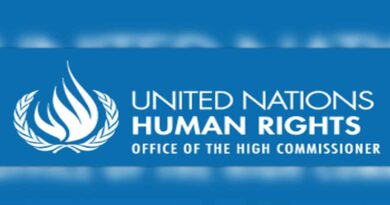A big setback to Arnab Goswami as SC dismisses his plea seeking to quash FIRs, demand for probe by CBI.
(Judicial Quest News Network)
“An accused person does not have a choice in regard to the mode or manner in which the investigation should be carried out or in regard to the investigating agency. Investigating agency is entitled to determine the nature of the questions and the period of questioning,”
The Supreme Court on Tuesday refused to quash the FIRs filed against Arnab Goswami while delivering its orders on pleas filed by him, the court reiterated that the journalistic freedom id at the core of the freedom of expression under Article 19(1)(a) of the Constitution.
The bench comprising of Justices DY Chandrachd and MR.Shah, however, held that this is not an absolute one, and is subject to the legal regime as under Article 19(2).
However the bench made it clear that the subsequent FIRs and complaints lodged against the journalist are quashed and that no other FIR or complaint shall be entertained or pursued on the basis of Goswami’s April 21 news broadcast on the Palghar lynching incident.
The Court while refusing to transfer the probe in the case to the Central Bureau of Investigation (CBI) reiterated that the same can only be done in exceptional circumstances.
“Routine transfers would belie not just public confidence in the normal course of law but also render meaningless the extraordinary situations the warrant the
Exercise of the power to transfer the investigation”, stated the Judgement authored by Justice Chandrachud.
The transfer was sought on the following grounds.
- The length of the interrogation which took place on 27 April 2020;
- The nature of the inquiries which were addressed to the petitioner and the CFO and the questions addressed during interrogation;
- The allegation levelled against the petitioners the failure of the state government to adequately probe the incident at Palghar involving an alleged lynching of two persons in the presence of Police and forest department personnel;
- Allegations which have been made by the petitioner on 28 April in regard to CP, Mumbai; and
- Tweets on the social media by activists of the INC and the interview by the complaint to a representative of R Bharath.
On the abovementioned points the court observed that these apprehensions did not make out a special case for transferring the probe to CBI.
“This Court held that so long as the investigation does not violate any provision of law, the investigation agency is vested with the discretion in directing the course of investigation”.
The Court said “that the investigating agency is entitled to decide “the venue, the timings and the questions and the manner of putting such questions” during the course of the investigation.”
The Court said that “merely because a party has levelled some allegations against the local police.” Accordingly, we do not find that levelling such allegations would by and itself constitute a sufficient ground for the transfer of the investigation.
“An individual under investigation has a legitimate expectation of a fair process which accords with law. The displeasure of an accused person about the manner in which the investigation proceeds or an unsubstantiated allegation (as in the present case) of a conflict of interest against the police conducting the investigation must not derail the legitimate course of law and warrant the invocation of the extraordinary power of this Court to transfer an investigation to the CBI. Courts assume the extraordinary jurisdiction to transfer an investigation in exceptional situations to ensure that the sanctity of the administration of criminal justice is preserved. While no inflexible guidelines are laid down, the notion that such a transfer is an “extraordinary power” to be used “sparingly” and “in exceptional circumstances” comports with the idea that routine transfers would belie not just public confidence in the normal course of law but also render meaningless the extraordinary situations that warrant the exercise of the power to transfer the investigation.”
Accordingly the court extended the interim protection against coercive action granted to Goswami for three weeks, during which time he may move to appropriate forum for any other relief. The Commissioner of Police of Mumbai has been directed to consider Goswami’s request for security and the same is to be provided based on the threat perception.
[Read Judgement]




